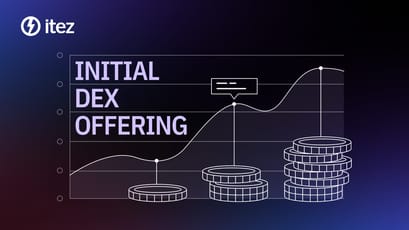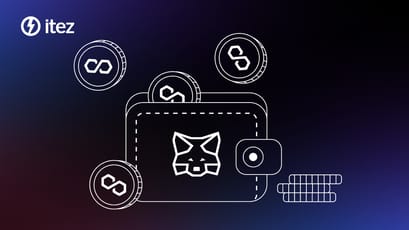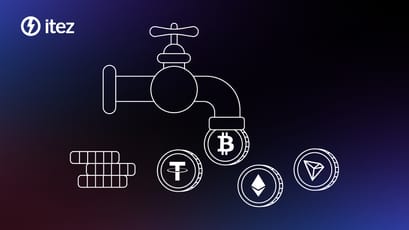Itez news
Stay up to date with the latest stories and commentary brought to you by itez, a handy service for purchasing crypto.
Subscribe
 What is algo trading and how does it work? A comprehensive guide
What is algo trading and how does it work? A comprehensive guide
In this piece, we'll delve into the intricacies of an innovative trading method called algorithmic trading, offering you insights into its workings.
 How high can Bitcoin climb with halving? Top price predictions review
How high can Bitcoin climb with halving? Top price predictions review
We compiled Bitcoin forecasts from prominent participants in the crypto industry into a single review.
 See you at the Global Blockchain Show
See you at the Global Blockchain Show
Experts from the web3 ecosystem will meet at the Global Blockchain Show to share ideas and discuss opportunities of this industry.
 A comprehensive guide to IDO (Initial DEX Offering)
A comprehensive guide to IDO (Initial DEX Offering)
Learn everything you need to know about IDO (Initial DEX Offering) - what it is, how it works, its benefits, and how to participate in it.
 Get to know the Global AI Show
Get to know the Global AI Show
Industry representatives will meet in Dubai to discuss everything about artificial intelligence.
 How to add Polygon to MetaMask: a comprehensive guide
How to add Polygon to MetaMask: a comprehensive guide
Learn how to add Polygon Network to your MetaMask wallet with our step-by-step guide.
 Let's go to CryptoVSummit!
Let's go to CryptoVSummit!
This year is special as CryptoVSummit’s date — April 17 — coincides with Bitcoin halving.
 Understanding yield farming
Understanding yield farming
Learn everything you need to know about yield farming in the booming world of DeFi.
 What is a crypto faucet?
What is a crypto faucet?
Learn how to earn free cryptocurrency with faucets. Discover the best faucets and tips for maximising your earnings.
 Bscscan: your guide to the world of BSC
Bscscan: your guide to the world of BSC
Bscscan is a powerful blockchain explorer that helps you find information about transactions, addresses, smart contracts, tokens, NFTs...


